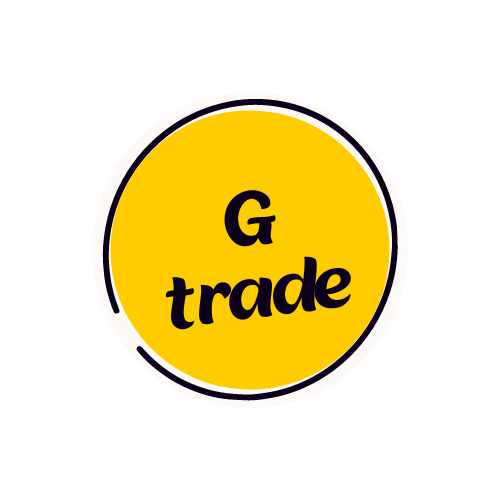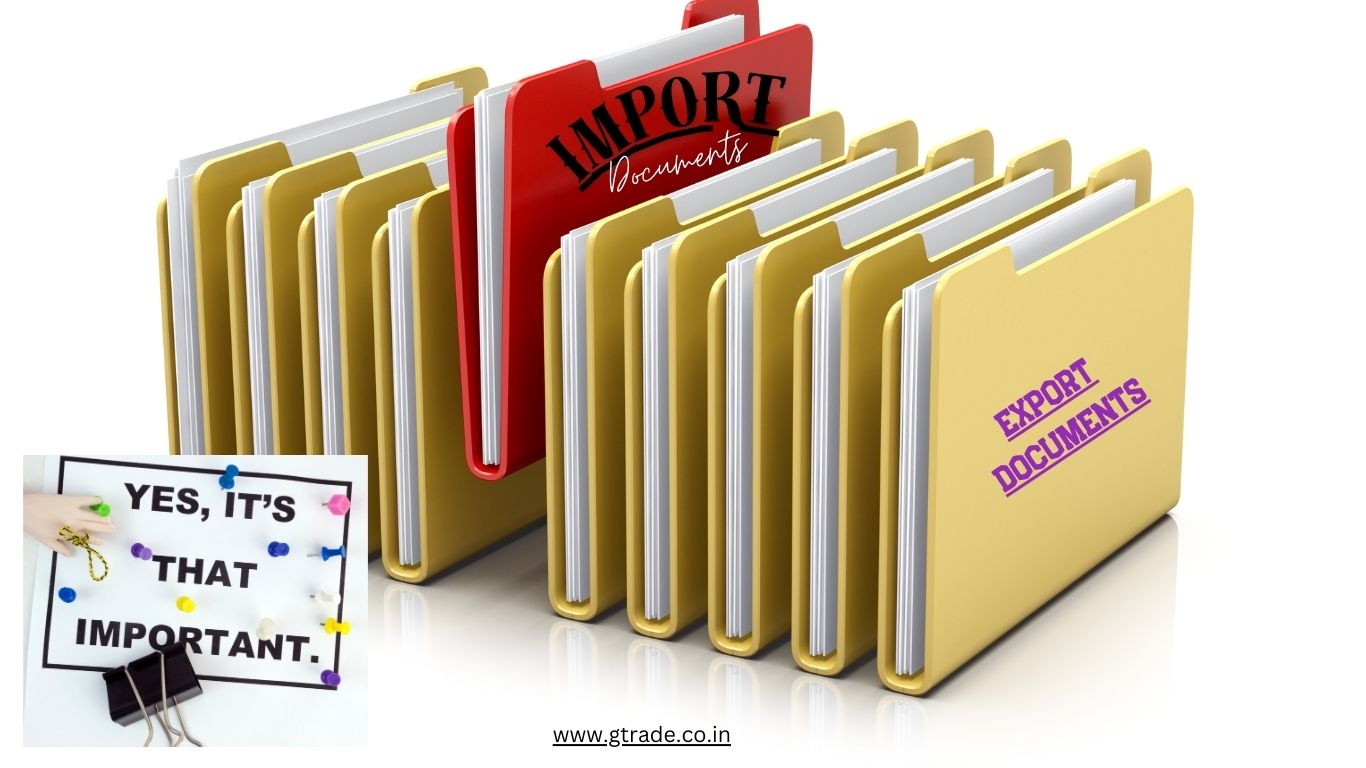In international trade, ensuring smooth import operations is based upon meticulous and accurate filing of import documents. Whenever, importing goods or products to new overseas markets, having the right paperwork in order is crucial. Proper documentation speeds the movement of goods across borders & also mitigates risks and ensures transparency in transactions.
List of documents required for Import of general product categories:
| 1 | Import License or Permit |
| 2 | Commercial Invoice |
| 3 | Packing List |
| 4 | Bill of Lading (B/L) / Airway bill |
| 6 | Certificate of Origin |
| 7 | Bill of entry |
| 8 | Import Declaration Form under foriegn exchange control (Form A-1) |
| 9 | Import Permit for Restricted Goods |
| 10 | Insurance certificate |
| 11 | Freight payment certificate |
| 12 | Import General Manifest |
| 13 | Terminal handling Reciept |
| 14 | Certified engineer’s report |
| 15 | Cargo release order |
| 16 | Product manual |
| 17 | Inspection report |
1. Import License or Permit: Depending on the nature of the goods and regulatory requirements of the importing country, an import license or permit may be necessary. This document authorizes the importer to bring specified goods into the country.
2. Commercial Invoice: The commercial invoice is a bill of sale between the buyer and seller, detailing the description, quantity, value, and terms of the goods being imported. It is essential for customs clearance and valuation purposes.
3. Packing List: This document provides a detailed list of the contents, packaging specifications, and weight of each package within the shipment. It assists customs officials in verifying the contents of the shipment and ensures accurate handling and delivery.
4. Bill of Lading (B/L): Issued by the carrier or freight forwarder, the bill of lading serves as a contract of carriage and a receipt for the goods being transported. It contains essential information such as the shipper, consignee, vessel details, and terms of shipment.
5. Airway bill: when mode of shipment is through air transport the airlines carrier, issues an air waybill (AWB) for goods transported, as an evidence of the contract of carriage. It is not a document of title to the goods. The air waybill is non-negotiable.
6. Certificate of Origin: This document certifies the country of origin of the goods and may be required for customs clearance, trade agreements, or preferential tariff treatment. It is typically issued by the exporter or a designated authority.
7. Bill of entry: Before the arrival of the imported products, importers or customs house agents must file BOE. It is a legal document that contains information about the nature of goods being imported.The BOE is submitted to the Customs department as part of the customs clearing process.
8. Import Declaration Form: Also known as a customs declaration or entry form, this document provides detailed information about the imported goods, including their classification, value, and origin. It is submitted to customs authorities for assessment of duties and taxes.
9. Import Permit for Restricted Goods: Certain goods may require additional permits or approvals for importation due to regulatory restrictions or safety concerns. Examples include firearms, pharmaceuticals, and hazardous materials.
10. Insurance certificate: A marine insurance certificate is a document that an insurance agency issues to the shipper, and is responsible for their cargo or any other shipping-related activity. It certifies that the cargo is insured while in transit and is supported by a copy of an insurance policy.
11. Freight payment certificate: The freight certificate is required for EXW & charter party shipments .The freight certificate contains the freight charges and Ex-work charges, charter party payments of a particular shipment. Freight charges are used for the calculation of the assessable value of goods imported.
12. Import General Manifest: Before arrival of cargo at destination port, the carrier or his agent has to file the details of cargo arriving to such port of importing country with the Customs. The filing of such details of cargo is called IGM filing (Import General Manifest filing.) Normally IGM is filed on the basis of Bill of Lading or Airway bill, issued by the carrier.
It’s mandatory to file IGM, without filing IGM details your CHA is not able to release the shipment from customs. By filing IGM, Carrier is informing the customs authority, that shipment has arrived at the customs area. IGM plays an important role in the Bill of entry filing. without IGM you can not release your import shipment from customs.
13. Product manual: manuals are created to instruct and guide users on the proper use, maintenance, or understanding of a product, system, or concept. manual provides detailed instructions or information on operation, maintenance, or protocol.
14. Terminal Handling reciept: Terminal Handling Charges or THC are fees charged by the shipping terminals for the storage and positioning of containers before they are loaded on a vessel. These services include equipment handling, container positioning, maintenance, storage and the discharging of equipment.
15. cargo release order: is a delivery order document issued by the shipper, carrier, or freight forwarder instructing the shipping line and the port operator to hand over the cargo to the party responsible for the import activities.
In normal cases, carriers file IGM details 4 hours before the arrival of cargo to the destination port.
List of Import documents required for specific product categories
| 1 | Catalog/Technical write-up. (For Electronics Products) |
| 2 | EPR – Authorization. (For Electronics Products) |
| 3 | WPC Licence. (For Wireless Products) |
| 4 | BIS Certificate. (For Products listed under BIS) |
| 5 | Fumigation Certificate. (For Wooden Products) |
| 6 | Phytosanitary Certificate. (For Wooden & Perishable Products) |
| 7 | FSSAI certificate. (For Food Products) |
| INSPECTION Certificate | All the above mentioned, are the inspection certifcates issued for different product categories |
Documents Required for Electronic Products.
There are some additional documents required for electronic products.
- Catalog/Technical write-up.
- EPR – Authorization.
- WPC Licence.
- BIS Certificate.
Catalog/Technical Write-up: The Catalog/Technical write-up is required for every Electronic product imported into India. Catalog/Technical write-up helps the proper officer to understand the product and its functioning.
EPR (Extended Producer Responsibility) Authorization: EPR authorization is mandatory for some of the electrical and electronic equipment and their components or consumables or parts or spares to import into India. EPR is implemented to avoid the Dumping of electronic & electrical products in India.
WPC Licence: You need to get WPC (Wireless Planning & Coordination) license to import wireless electronic products to India. WPC license is mandatory for all wireless products.
BIS Certificate: The BIS certification is also mandatory for some electrical products. A BIS certificate is issued by the Bureau of Indian Standards after testing samples of the product. You need to refer to the list of products under compulsory certification.
Documents Required for Wooden Products:
- Fumigation Certificate.
- Phytosanitary Certificate.
Fumigation Certificate: A fumigation certificate means a pest-control certificate.You need to get a fumigation certificate from the original shipment. Fumigation is not mandatory for finished wooden products. Mostly fumigation is done for wooden packaging and semi-wood products.
Phytosanitary Certificate: The phytosanitary certificate is another important document to import wooden products in India. To get NOC from plants and quarantine for wooden products, the phytosanitary certificate is required. If you are unable to get a phytosanitary certificate of origin of the shipment, Plant and quarantine will charge a 5-time penalty.
Documents Required for Food Products: To import food products in India, You need to get an FSSAI certificate. FSSAI certificate is issued by Food Safety and Standards Authority of India. As per the new rule you need to ask your supplier to provide a specimen copy of the label for the customs clearance of goods.
Documents Required for Medical Products: All Medical products imported into India are required to get NOC from ADC (Assistance Drug Controller).Assistance Drug Controller can ask you for the import permit of medical goods.
And If you Import raw materials, Then Assistance Drug Controller can ask for the manufacturing license of medical products. So, always remember to get the required documents before importing medical products.
FAQ On Import Customs Clearance.
What Is Import custom Clearance Procedure?
Whenever any goods are imported into India, examination of goods is done for verification, value and asessment of taxes by the customs Department. The importer shall present all the mandatory documents for custom clearence. once custom clearence is done, the goods are released for delivery to enter into the importing country.
How Much Time does Customs Clearance take?
If goods are imported under Air mode it will take 1 to 2 days for normal customs clerance. If it comes under Sea mode it will take 4 to 5 days for normal customs clearance.
Who has experience in customs clearing the same products which you want to import?
An experienced CHA can guide you with the required documents and all the formalities of customs clearance.
Note: If you arrange all the documents as per product requirement then nobody can stop your shipment from customs clearing your shipment.
Also, remember to select a reputed CHA (Customs House Agent) to customs clear your shipment.

